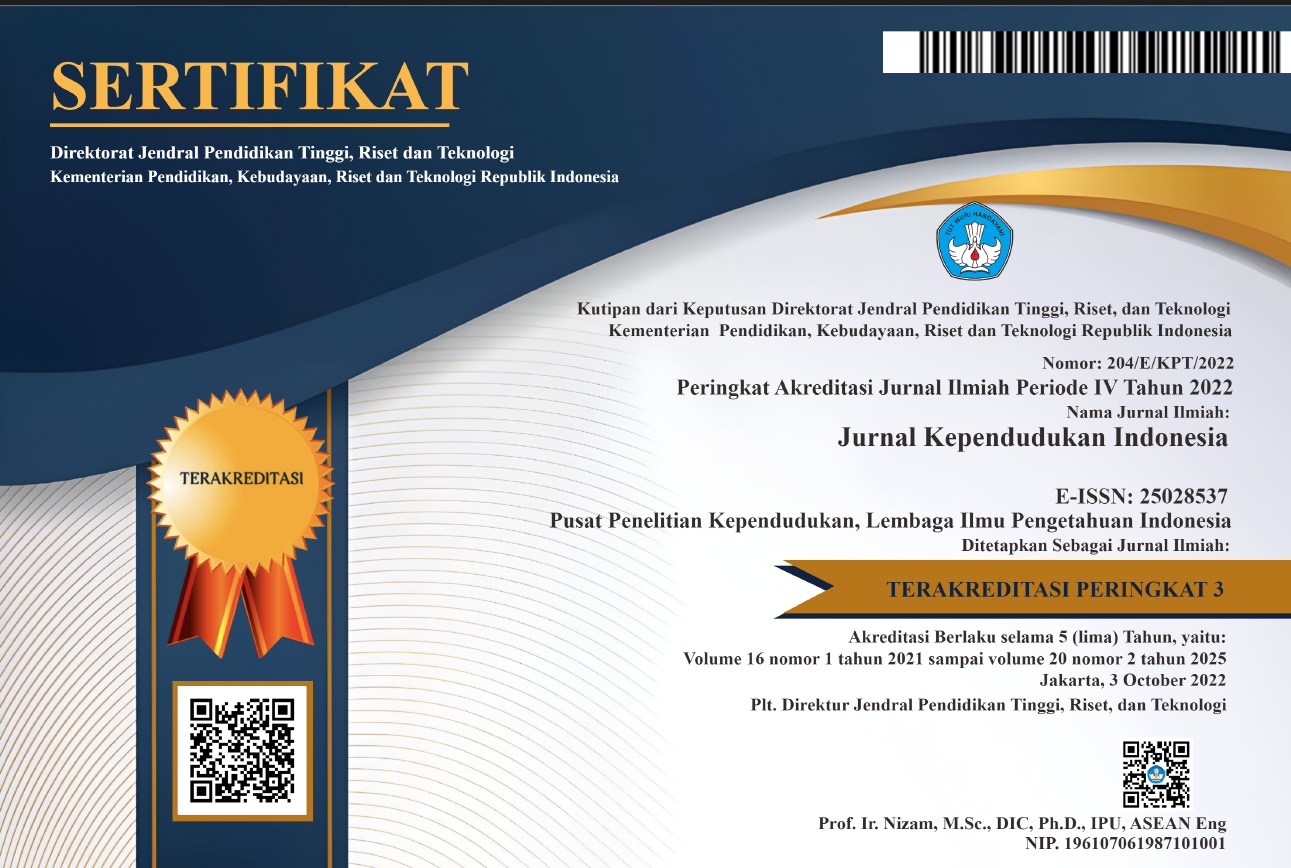Analisis regresi kuantil migrasi rumah tangga terhadap polarisasi pendapatan di Indonesia
DOI:
https://doi.org/10.55981/jki.2023.2011Keywords:
income polarisation, household migration, quantile regressionAbstract
Income polarisation is a crucial issue as it has brought a severe social impact and could potentially disrupt economic stability. Previous studies on this issue tend to look at income polarisation from the perspective of social and ethnic conflict. Furthermore, internal household migration as a cause of income polarisation in Indonesia has not received much attention in existing studies. To fill this gap, this study focuses on how household migration affects income polarisation in Indonesia. This study also addresses the further question of how living costs affect income polarisation in Indonesia. A quantitative analysis was performed using a quantile regression model using data from the fifth wave of the Indonesian Family Life Survey (IFLS) in 2014 to answer these questions. The results showed that household migration between provinces in Indonesia significantly influenced the realisation of downward and upward income polarisation. Additionally, the cost of living of migrants reduces both upward and downward income polarisation. This study indicates that policy measures must prioritise reducing income inequality and increasing equal access to education and skill training in all regions of Indonesia.
Downloads
Published
How to Cite
Issue
Section
License
Copyright (c) 2023 Aldo Rainaldo Dwi Putra, Yulia Anas, Maryanti Maryanti

This work is licensed under a Creative Commons Attribution-ShareAlike 4.0 International License.

